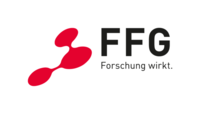Technical, Legal, and Organizational Implications of a Digital Product Passport (DPP) for Plastic Producing and Processing Companies.
Background
The transition to a sustainable circular economy calls for adjustments in many areas. For instance, waste disposal and processing companies need precise information about the type and composition of plastics they receive in order to produce high-quality recyclates (i.e., products from recycling processes). Additional prerequisites for reaching targeted quotas are well-separated material streams and recycled plastic in sufficient quantity and quality at a reasonable cost. The digital product passport (DPP) for plastic manufacturers and processors is a key component in achieving this. Manufacturers and distributors of plastic products are expected to collect all necessary data throughout their supply chain and record it in such a product passport.
Project Content
DPP4PLASTICS investigates the technical, legal, and organizational implications of a digital product passport (DPP) for plastic-producing and processing companies. The project brings together the Institute for Innovation Systems of the St. Pölten University of Applied Sciences, the Transfer Center for Plastics Technology (TCKT - https://www.tckt.at/en/), and the law firm Höhne, In der Maur, and Partner (https://www.h-i-p.at/). The overarching goal is to identify what kind of steps are required in research and developments to prepare the plastic processing industry for future challenges. In addition, deficits in procedures and processes, and obstacles, risks, and opportunities on the way to a circular plastic industry will be highlighted.
Goals & Methods
In the DPP4Plastics project, we use participatory (involving not only experts but also laypeople and stakeholders) technology assessment methods and procedures. Together with experts, we discuss and systemically explore the opportunities, implications and risks of transitioning to a circular economy.
We create a knowledge base for plastic manufacturing and processing companies, that aids them in adapting to new legal requirements and make the necessary adjustments. This covers different subtopics and presents some challenges that are listed below:
- To comply with new regulations, companies need to adjust and expand their plastic documentation schemes. This includes creating a metadata schema, providing necessary information, establishing new processes and interfaces, and defining responsibilities.
- Obligations to disclose product information and documentation requirements, particularly regarding material composition and processing, may make details about product composition and manufacturing methods widely accessible. This could potentially conflict with business secrets and warranty obligations.
- The digital documentation processes calls for new digital skills. If these are not available in-house or cannot be acquired easily, low-threshold tools and services are needed, so that companies securely can provide product data as well as utilize DPP data for their own purposes.
- Clarify the economic impact and regulations surrounding recyclable and DPP-compliant plastics. For example, repair warranties or take-back obligations will alter value creation processes and business models.
You want to know more. Feel free to ask.
- Transfercenter für Kunststofftechnik
- Höhne in der Maur & Partner Rechtsanwälte

